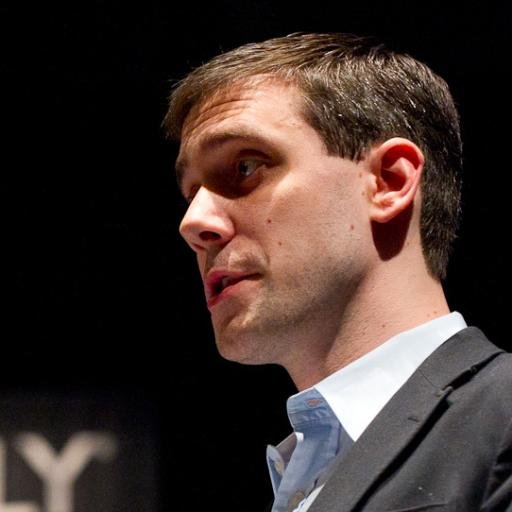On Building a Daily Habit of Continuous Learning
Education is what people do to you and learning is what you do to yourself. — Joi Ito
While I adore that perfectly tweetable quote from Joi Ito’s TED Talk, I’ve come to appreciate something he says a bit later in the same talk as an incredibly concise prescription for success in your career (and life in general):
[I]t’s about stopping this notion that you need to plan everything, you need to stock everything, and you need to be so prepared, and [instead] focus on being connected, always learning, fully aware, and super present.” (Emphasis added)
It’s no coincidence that that phrase is also an accurate description of how young children naturally engage with the world around them. In fact, John Seely Brown, in a talk called Cultivating the Entrepreneurial Learner in the 21st Century makes the case that we finally have the tools and technology to help spread and scale the kind of play-driven education first popularized by Maria Montessori more than 75 years ago. He also provides a useful metaphor to help understand how those same technology changes are shrinking the shelf life of key professional skills:
We are moving away from a 20th century notion of learning as picking up a set of fixed assets to a 21st century notion of learning as constantly reinventing and augmenting your skills. In the past, your skillset was authoritative, transferred to you in delivery models — often called schooling — and had a wonderful scalable efficiency. How do we move to a model that requires participating in ever-changing flows of activities and knowledge?
But much of the language we use to describe education and training remains firmly rooted in the asset-based approach Seely Brown describes: we talk about courses, and certificates, and degrees, all with the idea that learning is something to “complete”, with a defined endpoint. (Paulo Freire calls it the banking model of education.)
By way of comparison, it would be absurd to think it was possible to “complete” things like: being fit, eating right, or being a good marriage partner or parent. The only real measure of success on those dimensions is a sustained commitment to constant improvement — wanting to be at least slightly better today than you were yesterday.
It’s time to treat learning and skill development the same way — as a habit of deliberate practice to be cultivated and sustained for a lifetime — to keep learning in order to get a little bit better than you were yesterday.
Most of what’s written about deliberate practice is about things like athletic performance, musical instruments, or even computer programming: “Do the thing for around 10,000 hours and you’ll be an expert.” But developing a “continuous learning” mindset through a habit of daily learning isn’t about repeating a behavior to become proficient, it’s about building a positive habit that can crowd out negative ones, as well as have positive side effects on other parts of your work and life.
It’s just like how exercising for 30 minutes a day isn’t at all about becoming an expert on the elliptical machine — the payoff comes from all the benefits you get to enjoy during the other 1,410 minutes of your day. You sleep better, you feel better, you look better, and you’re just better equipped to handle the challenges life throws at you every day.
(And to carry the analogy further, formal courses and certifications will always have a place in learning, but are more like the occasional 5K run or half-marathon — not something you’d want to do every day, but when you do you’re going to perform much better thanks to those daily workouts.)
One of the very best sites on the Web is Maria Popova’s Brain Pickings. In a fantastic post about habits, she quotes William James, writing more than a century ago:
When we look at living creatures from an outward point of view, one of the first things that strike us is that they are bundles of habits.
If you’re like me, a fairly common “bundle of habits” in the modern (and mobile) age is to check email, peruse Twitter, look at Facebook, scan Slack and swing by Google Analytics to see how yesterday’s traffic numbers looked. I don’t think it’s controversial to call that a recipe for mindless multitasking and continuous partial attention. But being tethered to your phone also means you’re only a few taps away from an incredible wealth of knowledge and training to improve yourself.
As a way of “eating our own dogfood” when I was CEO at Safari Books Online (now the O’Reilly learning platform), we instituted a mandatory learning and development challenge, specifically around using our mobile apps for daily learning. I’m happy to say that our results were positive and truly profound. Yet we accrued no certifications, completed zero courses, and haven’t unlocked any badges; rather we saw a consistent and widespread shift in attitude and mindset toward continuous improvement and a genuine openness to new ideas and ways of thinking. As the CEO at the time, I couldn’t have asked for a better ROI than that.
But don’t take my word for it. Give it a try yourself: commit to spending 10 minutes a day for the next 10 days watching or reading anything from a book or video about something you’d like to improve at in your career. If you don’t know where to start, here are 10 high-quality book summaries from my friends at one of my former employers, getAbstract, that can be read in 15 minutes in less from your phone or laptop:
- Your Brain at Work
- The Power of Habit
- Exponential Organizations (one of Mark Zuckerberg’s book club picks)
- Nir Eyal’s Hooked: How to Build Habit-Forming Products
- Leadership and the New Science
- The Checklist Manifesto
- Peter Drucker’s Management
- The Fifth Discipline
- David Allen’s classic Getting Things Done
- Scaling Up
This post was originally published on Medium.

